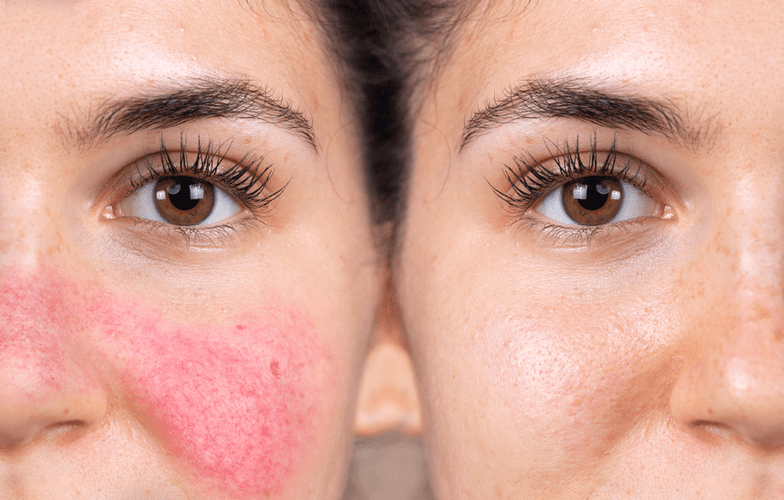Treatment of Addiction
Exercise, listening to music, getting sufficient rest—all can have a role in taking the focus off cravings. For many of those who are addicted, enduring http://dom2-fany.ru/show/2020/12/26/increase-brain-power-focus-music-reduce-anxiety-binaural-and-isochronic-beats.html even that action is unimaginable. What must follow is the process of behavior change, through which the brain gradually rewires and renews itself.

Common medications used to treat drug addiction and withdrawal
First is developing family-involvement protocols for providers to learn how to bring families into the picture; second is defining metrics to measure success; and third is creating user-friendly remote services for use by individuals and family members. Nevertheless, experts see relapse as an opportunity to learn from the experience about personal vulnerabilities and triggers, https://www.bez-granic.ru/main/lichnostivistorii.html?start=100 to develop a detailed relapse prevention plan, and to step up treatment and support activities. For starters, family members need to learn what the risk factors for addiction are and the internal and external struggles an individual faces in recovering from addiction, and they need to understand their own complex emotional reactions to the entire experience.
To overcome the overdose crisis, addiction treatment must be integrated into the health care system
- Functional imaging techniques allow researchers to measure the contributions and impact of specific brain structures to specific psychological processes (e.g., attention, working memory, impulse control, etc.).
- Drugs change the brain in ways that make quitting hard, even for those who want to.
- Some individuals have a genetic predisposition to addiction, making them more susceptible to relapse.
- Various HEAL-funded research projects, such as the HEALing Communities Study, partner with recovery organizations to help communities choose the most effective strategies to meet local needs and conditions.
- In order to meet the diagnostic criteria for an anxiety disorder, the individual must experience the symptoms on most days of the week for six months or more.
- Perhaps most importantly it requires leaders who are unequivocal that addiction treatment is no longer something that a few providers or a few systems should opt into, but rather an expected and non-negotiable part of health care.
Although research on peer RSS is limited, results so far are promising.5 The following are some important distinctions regarding peer recovery coaches. Non-12-step mutual aid group meetings are far less available than are 12-step mutual aid group meetings.43 This points to a need for more groups aimed at those not comfortable with the 12-step approach,82 as well as studies assessing their effectiveness. In 2010, SAMHSA rolled out Recovery Supports as one of its Strategic Initiatives, highlighting the importance of recovery as a valuable component in the continuum of care. Directly following the establishment of the Recovery Support Strategic Initiative, SAMHSA developed a five-year technical assistance contract to support recovery, known as BRSS-TACS (Bringing Recovery Supports to Scale – Technical Assistance Center Strategy). For diagnosis of a substance use disorder, most mental health professionals use criteria in the Diagnostic and Statistical Manual of Mental Disorders (DSM-5), published by the American Psychiatric Association.
Core Resource on Alcohol
Around 40% to 60% of people working to overcome a substance use disorder will relapse at some point. However, it is important to recognize that this rate is comparable to relapse rates for other chronic health conditions such as hypertension and asthma. The first step in overcoming addiction involves deciding to make a change. From there, preparing, planning, finding support, and talking to a healthcare provider can help put you on a path to a successful recovery. If you have an underlying mental health problem, such as anxiety or depression, it could worsen during the withdrawal phase.
Follow-up care can include periodic appointments with your counselor, continuing in a self-help program or attending a regular group session. Withdrawal from different categories of drugs — such as depressants, stimulants or opioids — produces different side effects and requires different approaches. Detox may involve gradually reducing the dose of the drug or temporarily substituting other substances, such as methadone, buprenorphine, or a combination of buprenorphine and naloxone. Helps people understand addiction, their triggers, and their reasons for using drugs. This form of treatment can be done at a doctor’s office or via telehealth appointment. Evidence-based guidelines can assist doctors with choosing the right treatment options.
Meeting People Where They Are
- Further, studies show, physical exercise accelerates rewiring the brain.
- A small group of adolescents relapsed when facing interpersonal difficulties accompanied by negative emotions and social pressures to drink or use.
- The groups vary widely in size, membership, and activities – but all provide various types of support to people living with the disease of addiction, including a human touch that connects people with lived experiences who have walked a familiar path.
- The goal is to eliminate the substance from the body and manage the physical discomfort, drug cravings, and psychological distress that occur in response to the abrupt cessation of a substance the body has depended on and adapted to.
- This activity provides 0.75 CME/CE credits for physicians, physician assistants, nurses, pharmacists, and psychologists, as well as other healthcare professionals whose licensing boards accept APA or AMA credits.
- A study published in the Journal of Psychoactive Drugs showed that eight sessions of EMDR, combined with traditional treatment for patients with dual diagnoses, resulted in an improvement in PTSD and depressive symptoms.
The risk of dying from an overdose is extremely high if you have been through withdrawal because your tolerance of the drug will be much lower than it was before you quit. Fortunately, most of the acute symptoms of withdrawal pass within a week or two of quitting. However, some people who quit an addiction find that certain withdrawal symptoms seem to go on and on. This is known as post-acute withdrawal syndrome (PAWS), and it can continue for weeks, months, or even years in some cases.

The Brain in Recovery looks at how the brain changes as individuals enter and progress through addiction recovery, exploring the connections between neurobiological processes and recovery-related behaviors. Recovery from a substance use disorder is defined as a process of improved physical, psychological, and social well-being and health after having suffered from a substance-related condition. Our Recovery Coaches offer 20 support groups each week, and groups are offered every day of the week. Recovery Coach-led support https://www.ae911truth.info/practical-and-helpful-tips-3/ groups occur 365 days of the year, including longer, drop-in versions on Thanksgiving, Christmas Eve, Christmas Day, New Year’s Eve, and New Year’s Day—days in which people living with opioid use disorder have a higher risk of relapse. Recovery Coach-led support groups also offer Women’s Groups, Men’s Groups, and Early Recovery Groups (for patients who identify with each respective group). Various barriers have made family involvement in services for substance use disorders the exception rather than the rule.
Fortunately, researchers know more than ever about how drugs affect the brain and have found treatments that can help people recover from drug addiction and lead productive lives. Your relationships and friendships are likely to change as you overcome your addiction. However, it can also take time and effort for trust to be re-established if you have hurt friends or family while you were actively involved in your addiction. Strengthening positive relationships with the supportive people in your life can play an important part in your recovery and continued abstinence. There are many different treatments that can help you during the process of overcoming an addiction, including medical and psychological approaches. There is no one “right” type of addiction treatment, although some approaches are better supported by research than others.

Any research study that prospectively assigns human participants or groups of participants to one or more health-related interventions to evaluate the effects on health outcomes. Your therapist or licensed counselor can help you locate a self-help support group. You may also find support groups in your community or on the internet. While naloxone has been on the market for years, a nasal spray (Narcan, Kloxxado) and an injectable form are now available, though they can be very expensive.
